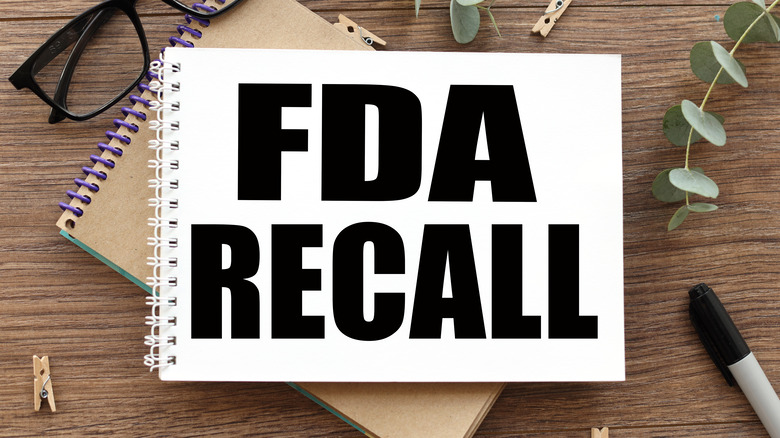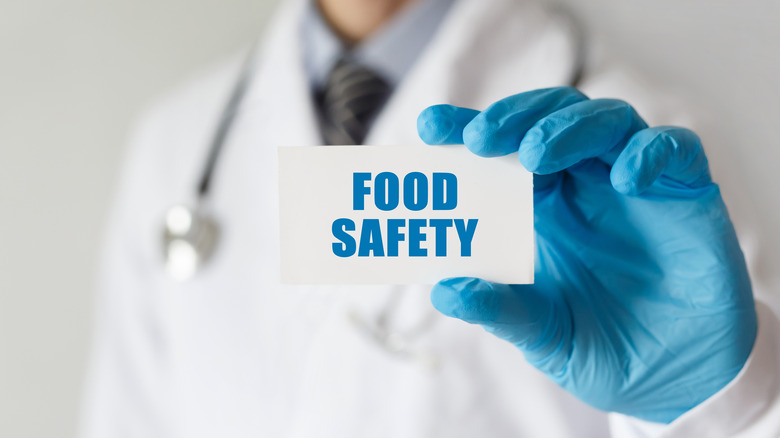How Technology Could Change The Way Food Recalls Are Done
Generally when there is a food recall, we only hear about it when it makes the news, and that's usually only recalls involving severe outbreaks that have resulted in multiple hospitalizations and/or deaths. If you happened to miss the news that day, you might be completely unaware that a product you have in your kitchen is linked to a foodborne illness.
Food recalls are typically brought to our attention by federal agencies such as the FDA, USDA, and CDC, the former two of which keep updated website pages documenting recalled items. But there is no centralized system currently in place that sends recall information to consumers in real time.
According to MSN, a nonprofit group called Stop Foodborne Illness is hoping to change that and improve consumers' access to food recall information. It released a list of food safety recommendations that would utilize the latest technology including placing QR codes on food labels that people could scan with their phones to inform them of whether a product they have purchased has been recalled. Other people support the idea of using Blockchain as an effective means of storing data, tracing outbreaks, and sharing real-time information about a recall or even preventing one altogether.
Improving food safety through innovation
An April 2019 statement issued by the FDA announcing a "new era of smarter food safety" discussed technological advances to safeguard food and keep the public better informed of food recalls. One tool is the GenomeTrakr Network, which assists in foodborne outbreak investigations. The FDA also examined the idea of using digital technologies to more quickly trace an outbreak to its source, employing sensors and artificial intelligence to improve food safety at each link in the supply chain. Traceability is key because it can indicate the "scope and scale of the recall effort required," according to Forbes, and the average product recall delivers a major financial hit to the company involved.
The FDA is also exploring how to more effectively communicate with consumers about recalled products, whether through social media, email, text alerts, or the aforementioned QR codes, per MSN. Some grocery stores like Costco use information gathered from membership or loyalty programs to immediately call or text shoppers about a food recall.
The FDA has said that bolstering food safety and mitigating the risk of contamination will require a combination of technological innovation and collaborative effort among federal, state, and local partners throughout the food supply chain to share tracking information more efficiently.

